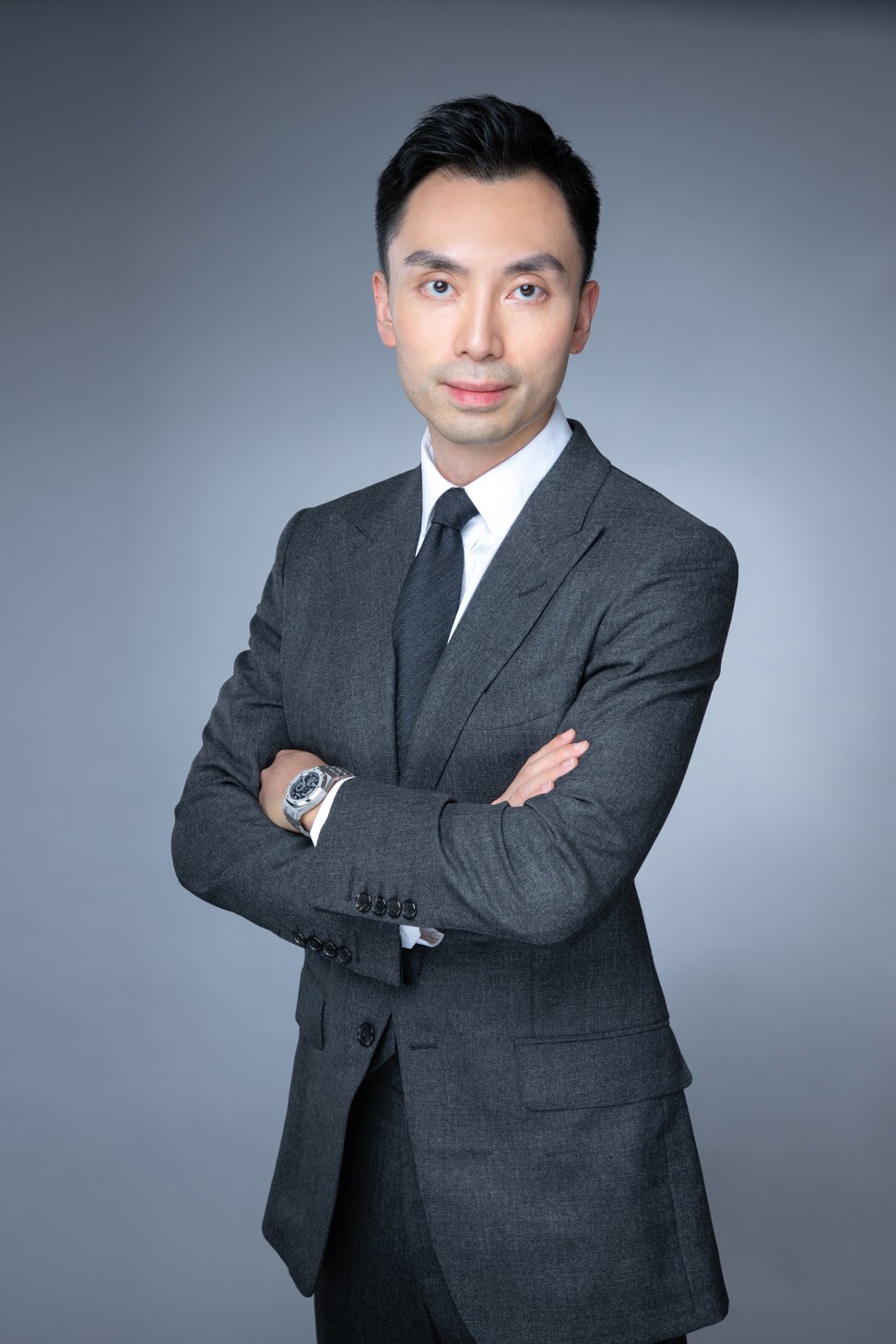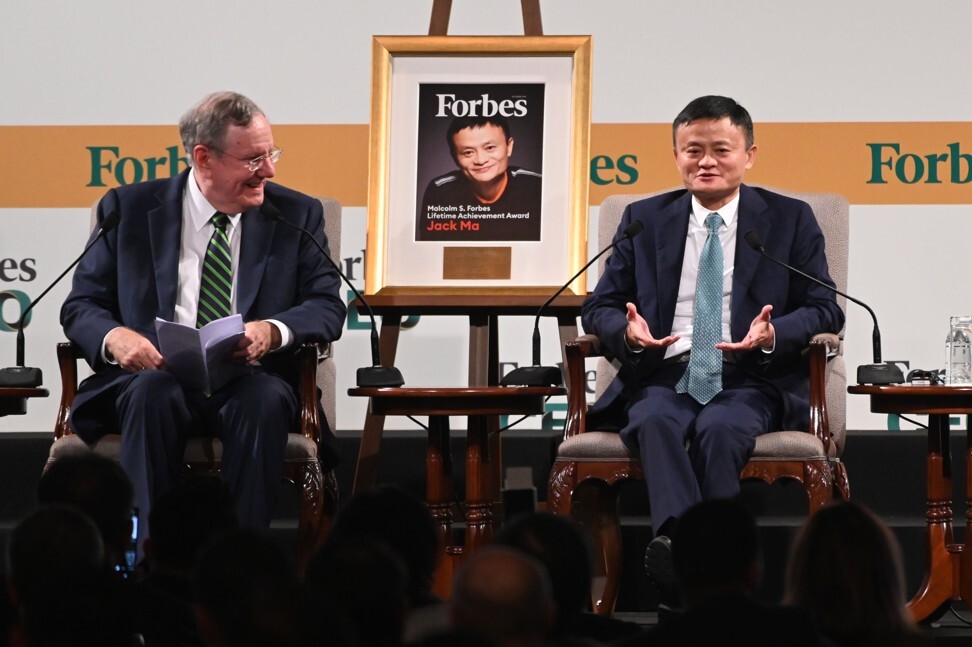
03:34
SPACs: Everything you need to know about the finance world’s new big thing

A slowdown in issuance by special purpose acquisition companies (SPAC) after a blockbuster start this year is “healthy” for the market and will help sustain the appetite for the investment vehicle going forward, according to the co-founder of L2 Capital Management, a Hong Kong-based private investment firm and blank-cheque company sponsor.
There was a “mismatch” in market dynamics to begin the year, with investors focused on growth stories and placing little focus on valuations, said Jonathan Lin, who also serves as CEO of Magnum Opus Acquisition, a Hong Kong-based SPAC. That has since shifted as investors look for companies set to benefit from a post-Covid-19 recovery and place a greater focus on valuations, he said.
“A lot of the SPAC targets are pro-growth, but the market demand for assets has shifted to something more balanced,” Lin said. “My view is that in the next three to six months, we’ll see more of a rebalancing. The SPAC sponsors working on transactions will have targets that better match current investor demand.”
US-listed Magnum Opus agreed last week to acquire the American publisher of Forbes magazine in a deal that valued the company at US$630 million, net of tax benefits. The deal came seven years after Forbes sold a majority stake to Integrated Whale Media Investments, a Hong Kong-based investor group led by Yam Tak-cheung, chairman of Integrated Asset Management.

03:34
SPACs: Everything you need to know about the finance world’s new big thing
SPACs have been one of the hottest fundraising trends in the past 18 months, raising US$122 billion this year alone, according to data from financial-data provider Refinitiv. These takeover vehicles do not have any existing business, but are created purely to raise financial war chests and buy assets within a specified period of time, usually 18 months to two years.
However, SPAC IPOs have slowed in recent months after the US Securities and Exchange Commission increased scrutiny on stock warrants that are common to the transactions, with August being the second slowest month for fundraising since June 2020 as just US$4.7 billion has been raised, according to Refinitiv.
Another factor: so-called private investment in public equity (PIPE) financing is becoming harder to come by as investors become more selective following the blistering pace of SPAC IPOs this year, according to sponsors.
“It really comes down to the asset,” Lin said. “If you have the right asset, you still can raise [PIPE] financing.”
As part of the Forbes Global Media Holdings transaction, Magnum Opus has already secured US$400 million in PIPE financing to help fund the deal, Lin said.

The deal for 104-year-old Forbes represents a balanced investment in today’s market environment – a company showing good growth that was also available at a discount to comparable publicly listed companies, Lin said.
“It’s much more than a media company. Most people had the expectation that this is still predominantly a magazine-driven business, very old media, a bit old economy for a better word,” Lin said. “Most people were pleasantly surprised at how digitalised the business is, how little magazine it is and it’s already in verticals outside media leveraging the brand.”
The company publishes seven issues of Forbes magazine a year, but has built a much broader brand through conferences, licensing and its franchises, such as its “30 Under 30” and billionaires lists.
Its media operations accounted for about 72 per cent of its US$183 million in revenue in 2020, but the company expects its so-called consumer and brand extensions, such as conferences, to account for about 55 per cent of its revenue in 2023 and beyond, according to an investor presentation.

“We already built this digital audience of scale. It’s a 150 million [person] digital audience the company has today,” Lin said. “The opportunity is to drive that 150 million into what we call a paying membership. There’s where the opportunity is.”
The Forbes transaction comes amid a series of recent deals involving media companies.
On the same day the Forbes deal was announced, German publisher Alex Springer agreed to buy Politico in a deal valued at more than US$1 billion, including the remaining 50 per cent it did not own of Politico Europe.
In June, BuzzFeed agreed to go public via a SPAC in a deal that would value it at US$1.5 billion. In May, shares of Tribune Publishing, the owner of The Chicago Tribune and The Baltimore Sun, approved the sale of the newspaper publisher to private equity firm Alden Global Capital in a deal that valued the company at about US$630 million.
“We are in a consolidating landscape,” Lin said. “People are trying to get a scale of economies across the board.”
In this environment, Forbes could explore potential acquisition opportunities in four areas where it has the largest existing audience: finance and investing; education; technology and entrepreneurship; and luxury, Lin said.
Lin, a former managing director at Stephen A Cohen’s Point72 Asset Management, formed L2 Capital last year with Frank Han, a former senior principal at the Blackstone Group, and Kevin Lee, a former investment director in the venture capital arm of Hong Kong family office investment firm Gallant Investment Partners.
Magnum Opus is their first SPAC, but L2 Capital could pursue other SPAC opportunities in the future. Investors in its first blank-cheque company include Sumitomo Mitsui Financial Group’s asset management business, Singapore investment firm Integrated Core Strategies and Chinese sovereign wealth fund China Investment Corp.
“For L2, or for us, we really need to earn the mandate,” Lin said. “We need to deliver shareholder outcomes. There needs to be a successful share price: short, medium, long-term. That’s how investors measure us and how we measure ourselves. If the market rewards us for this Forbes de-SPAC, we’re open to it.”